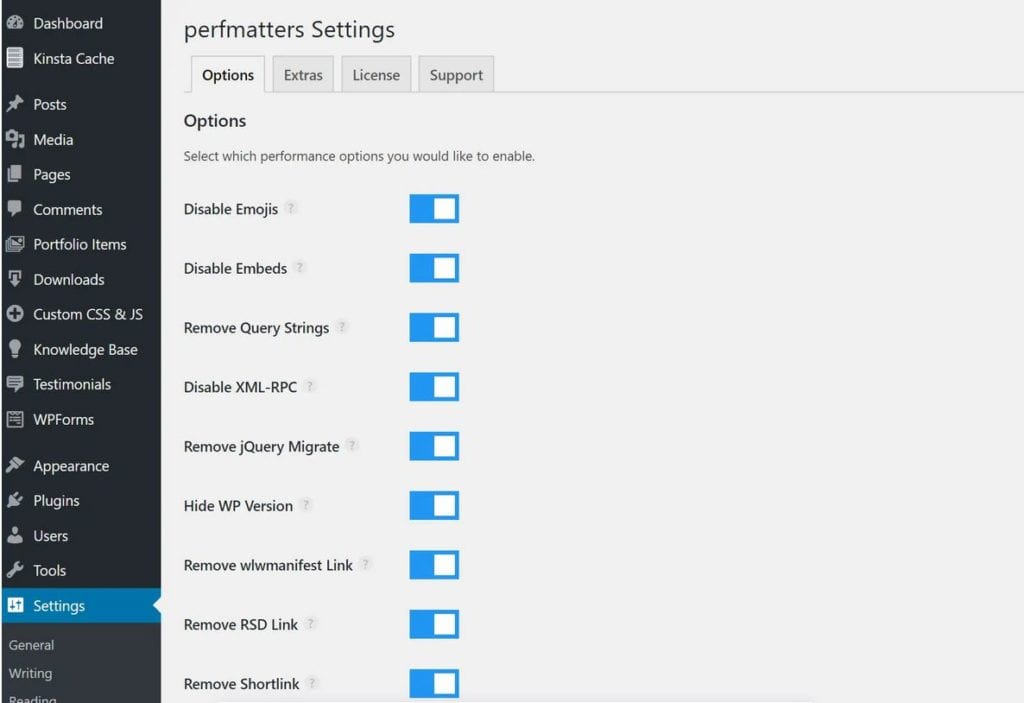WordPress Performance Optimization: 6 Plugins for Better Loading Times

You certainly will recognize the following scenario: You find an interesting link to an external website on Google or social media and click on it expecting the best.
Seconds pass, nothing happens…. then, finally, a website framework. However, without pictures and colors …
How long do you wait until you give up and engage in other activities? 5 seconds, 10 seconds? Probably not even that long. Our patience span is very short these days. And the information overload taxes our patience anyway.
That’s why you want to avoid these situations on your own WordPress site at all costs.
But they happen – faster than you might think!
Optically attractive blogs and websites with interactive features often require more data download than one is initially aware of.
Even if everything loads quickly on your device and with your internet connection, that does not necessarily apply to all your potential users.
Which leads to dissatisfaction, high dropout rates, and lower conversion rates.
Hardly anyone can and wants to afford that these days.
Increase the performance of your website with these 6 plugins
To avoid this horror scenario, there are objective, external testing methods that evaluate the loading time of your WordPress presence (such as Google Page Speed Insights).
There is also a series of WordPress plugins that not only test the performance of your page, but also help you to optimize it quickly – with next to no effort.
Below we’ve summarized the six most useful plugins and tools to help you optimize the performance of your WordPress presence.
1. Perfmatters
Ideally, you want to optimize the performance of your site, without sacrificing the benefits and features you love.
Perfmatters is a lightweight WordPress performance plugin designed for this purpose: it eliminates resource-consuming features that are not necessary for the functionality of your website and allows you to restrict or disable certain accesses on individual pages that slow down your page.
In line with: Anything that doesn’t need to load makes the website faster.

In practice, one could, for example, restrict the interaction between blog and browser on the start page to ensure fast loading times and attract visitors to your web presence.
However, the interaction can be reactivated on individual article pages – to allow more interactivity.
It’s all up to you. You can decide on the exact settings. With just a few clicks you can make over 30 optimizations immediately.
2. WP Smush Pro
Another candidate fresh out of the category “not less, but more efficient” is the plugin WP Smush Pro.
With WP Smush Pro you can optimize all images on your WordPress page – and there’s often a lot more than you think.
The optimization processes of the plugin include e.g. the adaptation of image sizes without quality loss.
In addition it enables you to delay the loading of images that your visitors won’t see until they start scrolling and hence, makes the initial loading speed of your WordPress website way faster.
3. WP Super Minify
With this useful tool you can get rid of unnecessary JavaScript and CSS ballast and hence, increase the performance.
CSS contains code routines that are responsible for visualizing your page, JavaScript controls many of the interactive blog elements.
If you have already made various changes to your page in the past, there is normally a fair bit of old code segments no one needs anymore- these can be eliminated with WP Super Minify.
However, before using WP Super Minify to clean your site of all old code ballast, it is best to create a backup copy of your WordPress site first.
Sometimes a needed code line accidentally wanders along with a lot of unnecessary code-into nirvana. You will never be more grateful for a backup that enables you to easily reset your page.
4. Simple Cache
There are many caching plugins for WordPress, but Simple Cache is probably the most intuitive and elegant solution.
With caching, you can reduce the work of your WordPress server by not having to deal with every request on its own, but by forwarding it to a virtual memory (the cache). This will then send the requested data to the visitors of your website, which leads to a significant performance improvement.
And that’s exactly what Simple Cache does.
The more frequently a file is requested, the sooner it ends up in the cache and can be sent from there.
In practice, this means that the home page will keep a lot of items stored in the cache. As a result, it can be loaded very fast.
This ensures a positive user experience and leaves a professional first impression.
5. BJ Lazy Load
Do you remember the function of Smush Pro that enables you to load images only when your visitors have actually scrolled down?
BJ Lazy Load extends this feature to all content items on your blog, minimizing the number of files, that need to be sent between the server and the browser.

A true performance booster!
To ensure that your visitors don’t just see a blank page when scrolling down and that the server doesn’t suddenl have to load lots of data, BJ Lazy Load replaces your content with attractive wildcards that you can choose yourself.
6. WP Optimize
One last, but by no means unimportant, aspect of your website optimization is tidying up your WordPress database.
You probably know the issue from your operating system: the longer you’ve been using it, the longer it takes to load files.
Unfortunately, this is also the case with your WordPress database. You constantly write in it, edit it and delete elements – and in the end, it accumulates a lot of unnecessary ballast.
This degrades the performance of your website immensely.
WP Optimize searches your WordPress database for you and cleans up. Without you having to do something.
This plugin acts like the handy vacuum cleaner robot for the living room.
Clean up to improve performance? Oh yes!
The unnecessary ballast in the database is one of the main reasons for slow loading times.
WP Optimize discretely ensures that this does not happen to you.
And for that you do not need to know much about building the database – the program is delivered “free house” with that knowledge and you can just let it work in the background.
Short loading times and positive user experiences
Using all 6 plugins will significantly improve the performance of your web presence – no matter which device your users use to access to your website.
One central question, however, remains unanswered: How often is your website or blog not reachable at all?
You might assume that’s never the case. However, if that’s solely based on your sheer confidence in your web hosting service, then it’s certainly worth checking – because websites unavailable far more often than you might think.
And even a perfectly optimized website with the best performance does not help when it is simply offline!
Want to know more about down times? Read it here.
As you can see, there are many things you can do to improve the performance of your website and thus the user experience.
If you do not want to bother getting to know all these helpful little plugins and prefer a holistic solution, we offer you a complete performance check for your WordPress presence.
You can be sure that all relevant issues are screened and the performance of your WordPress presence reaches the maximum level.


